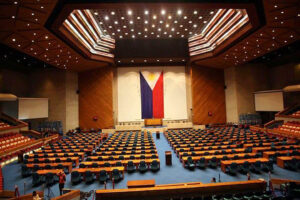THE HOUSE of Representatives is looking to approve the proposed P6.352-trillion national budget for 2025 before Congress goes on a break in September, House Speaker and Leyte Rep. Ferdinand Martin G. Romualdez said on Wednesday.
“Aside from our commitment in approving the few remaining LEDAC (Legislative-Executive Development Advisory Council) priority measures agreed upon during the June 25 council hearing, the House will again work doubly hard to pass the proposed P6.352-trillion 2025 General Appropriations Bill before we go on break this end of September 2024,” Mr. Romualdez said in a statement.
The Development Budget Coordination Committee last week proposed a P6.352-trillion budget for 2025, a 10% increase from this year’s P5.768-trillion budget.
Budget Secretary Amenah F. Pangandaman last week said the proposed National Expenditure Program for 2025 will be submitted to the House on July 29, one week after Congress reopens on July 22.
“The National Expenditure Program will undergo rigorous scrutiny to ensure that every peso allocated is judiciously spent and aligned with our national priorities,” Party-list Rep. Elizaldy S. Co, who heads the House Appropriations Committee, said in a separate statement.
Mr. Romualdez said the House will conduct budget hearings but also deliberate on the LEDAC priority measures.
These include amendments to a law that privatized the power industry and a proposal to extend the lease period for foreign investors. Other pending measures include amendments to the agrarian reform law and bills seeking to modernize public budgeting and national defense.
Analysts said the higher allocation for next year’s budget could drive economic growth. Economic managers are targeting 6.5-7.5% gross domestic product growth in 2025.
“The growth of more than +10% in the 2025 national budget… would bode well for faster economic and GDP (gross domestic product) growth. The largest allocation for education, infrastructure, social services, among others, would help expedite economic growth and development,” Rizal Commercial Banking Corp. Chief Economist Michael L. Ricafort said in a Viber message.
The government should ensure that its budget is efficiently spent to reap the economic benefits, Leonardo A. Lanzona, an economics professor at the Ateneo de Manila University told BusinessWorld in a Facebook Messenger chat.
“The huge budget does not guarantee any improvement in the Philippine economy. A lot will depend on how efficiently it will be used and distributed,” he said.
Mr. Lanzona said economic managers should look at reducing the country’s “high debt-to-GDP ratio” to meet sustained economic growth.
The debt-to-GDP ratio stood at 60.2% as of the first quarter. This year, the government’s debt-to-GDP ratio target was set at 60.3%, slightly higher than the 60% threshold considered by multilateral lenders to be manageable for developing economies.
“Tax and fiscal reform measures would be realistically needed to bring down the country’s debt-to-GDP ratio to below the 60% international threshold, helping sustain the country’s relatively favorable credit ratings,” Mr. Ricafort said.
The government should intensify tax collections before considering new tax laws, he added.
“Priority would be to intensify tax collections from existing tax laws and encourage compliance with the payment of correct taxes,” Mr. Ricafort said. “Last option would be new and higher taxes, especially if inflation stabilizes in the coming months and years.” — Kenneth Christiane L. Basilio
